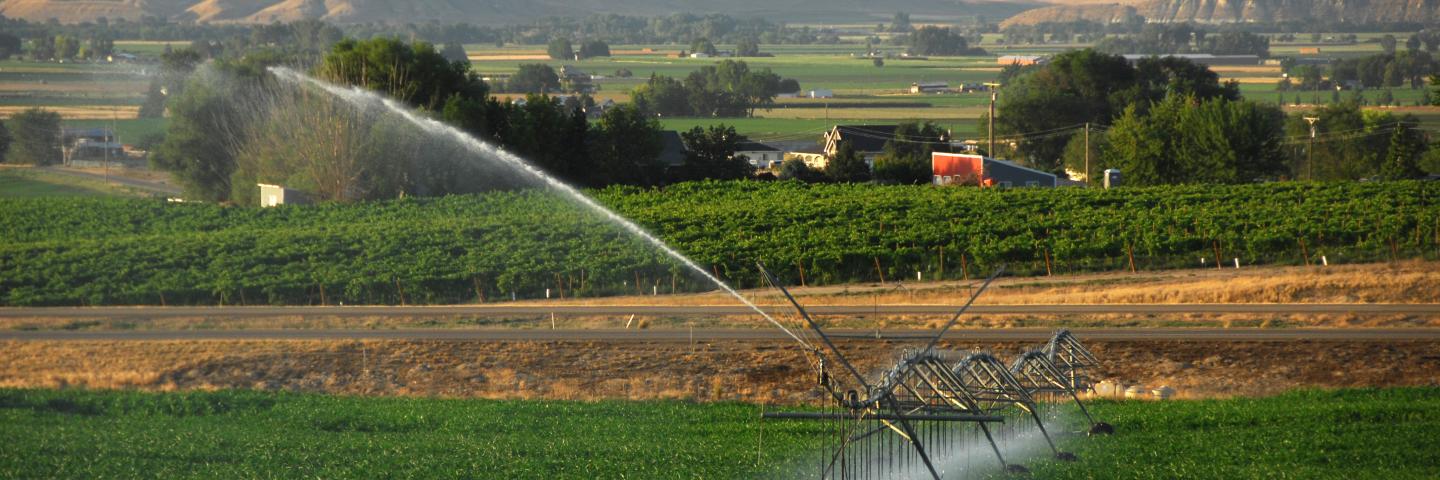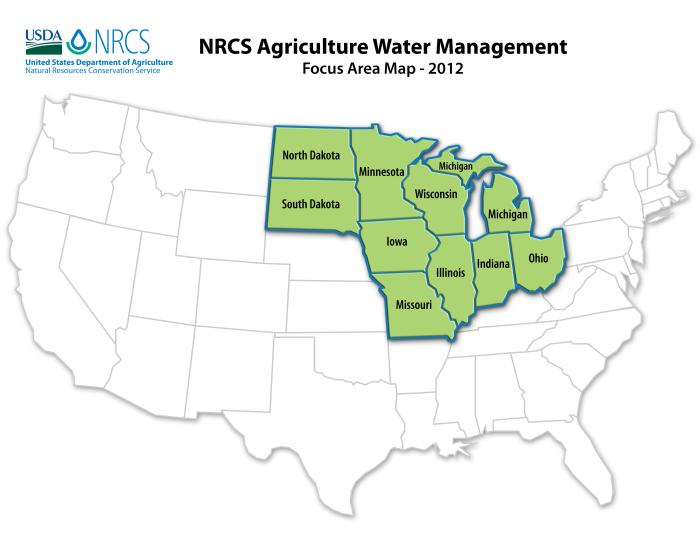
The National Water Management Center (NWMC) provides assistance with the application of hydrology and hydraulics to all NRCS programs, with an emphasis on consultation and training of State personnel.
Water management is the control and movement of water resources to minimize damage to life and property and to maximize efficient beneficial use. Good water management of dams and levees reduces the risk of harm due to flooding. Irrigation water management systems make the most efficient use of limited water supplies for agriculture.
Drainage management involves water budgeting and analysis of surface and sub-surface drainage systems. Sometimes water management involves changing practices, such as groundwater withdrawal rates, or allocation of water to different purposes.
NRCS' drainage water management video
As the name suggests, drainage water management helps producers manage water on their fields. This practice can increase production, keep nutrients on the field and send clean, filtered water downstream.
Drainage Water Management- NRCS National Ag Water Management (AGWAM) Team
The Chief formed the National Ag Water Management (AGWAM) Team to assist states in the voluntary conservation efforts to reduce nitrates leaving the drained farmlands. The initial focus of this team is to address the intensively drained farmlands in the Upper Mississippi River Basin – Indiana, Illinois, Iowa, Missouri, Minnesota, and Ohio. Since then the focus area has been expanded to include the Great Lakes Basin and the Red River Valley adding Michigan, Wisconsin, South Dakota and North Dakota due to water quality issues and the expansion of subsurface drainage systems.

Agriculture practices in this region have been identified as a major contributor to nutrient loading of receiving waters, including nutrient enrichment in the Gulf of Mexico and Great Lakes that leads to adverse environmental and economic consequences. The team is working in collaboration with partners to develop and implement an action plan that helps producers voluntarily apply nutrient and water management practices to reduce nitrate loading in the Upper Mississippi River Basin and phosphorus loading in the Great Lakes Basin.
The AGWAM team’s charge is to increase the adoption of the management of agricultural drainage water management (DWM) and associated practices such as denitrifying bioreactors, vegetated subsurface drain outlets for conservation benefits. This is being carried out through a collaborative effort with our partners.
The AGWAM team is made up of technical and programmatic experts from across the agency. It includes National, Center and State NRCS staff members as well as advisors from the academic arena. The Executive sponsors of the team include the Central Regional Conservationist, the Deputy Chief for Science and Technology, Deputy Chief for Programs, and the Deputy Chief for Soil Survey and Resource Assessment.
Accomplishments can be seen on the charts and graphs below.

